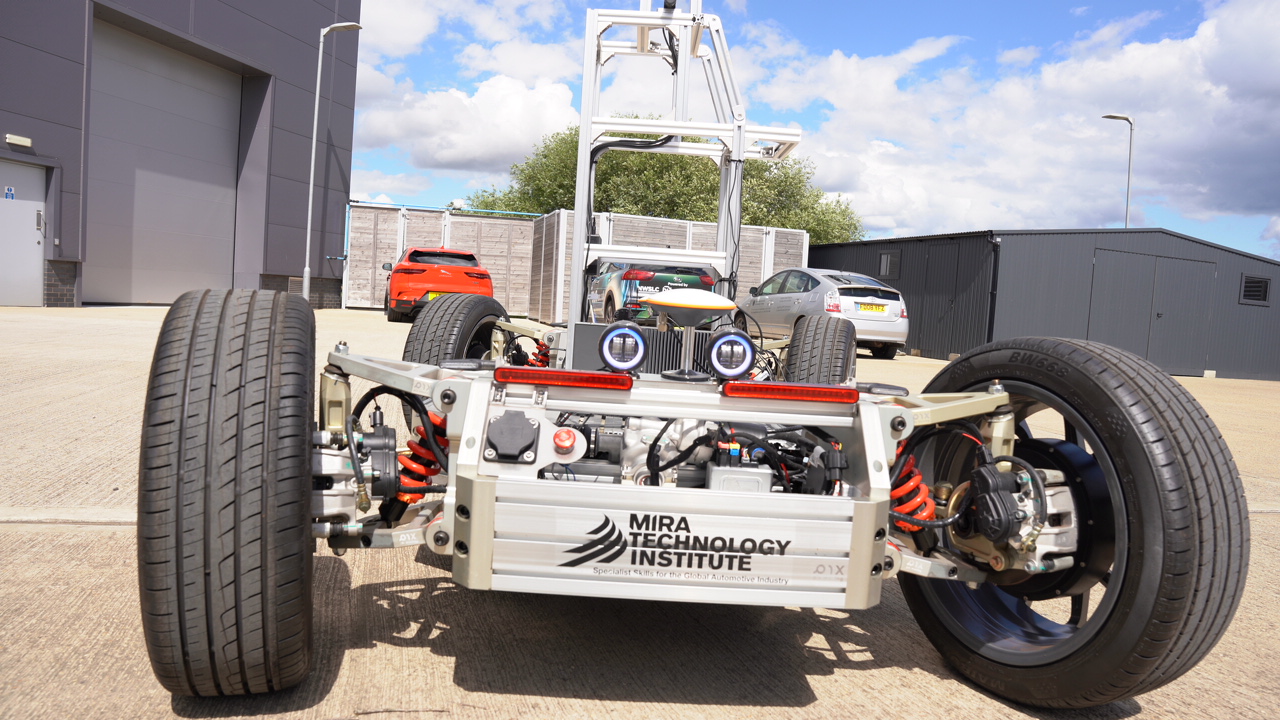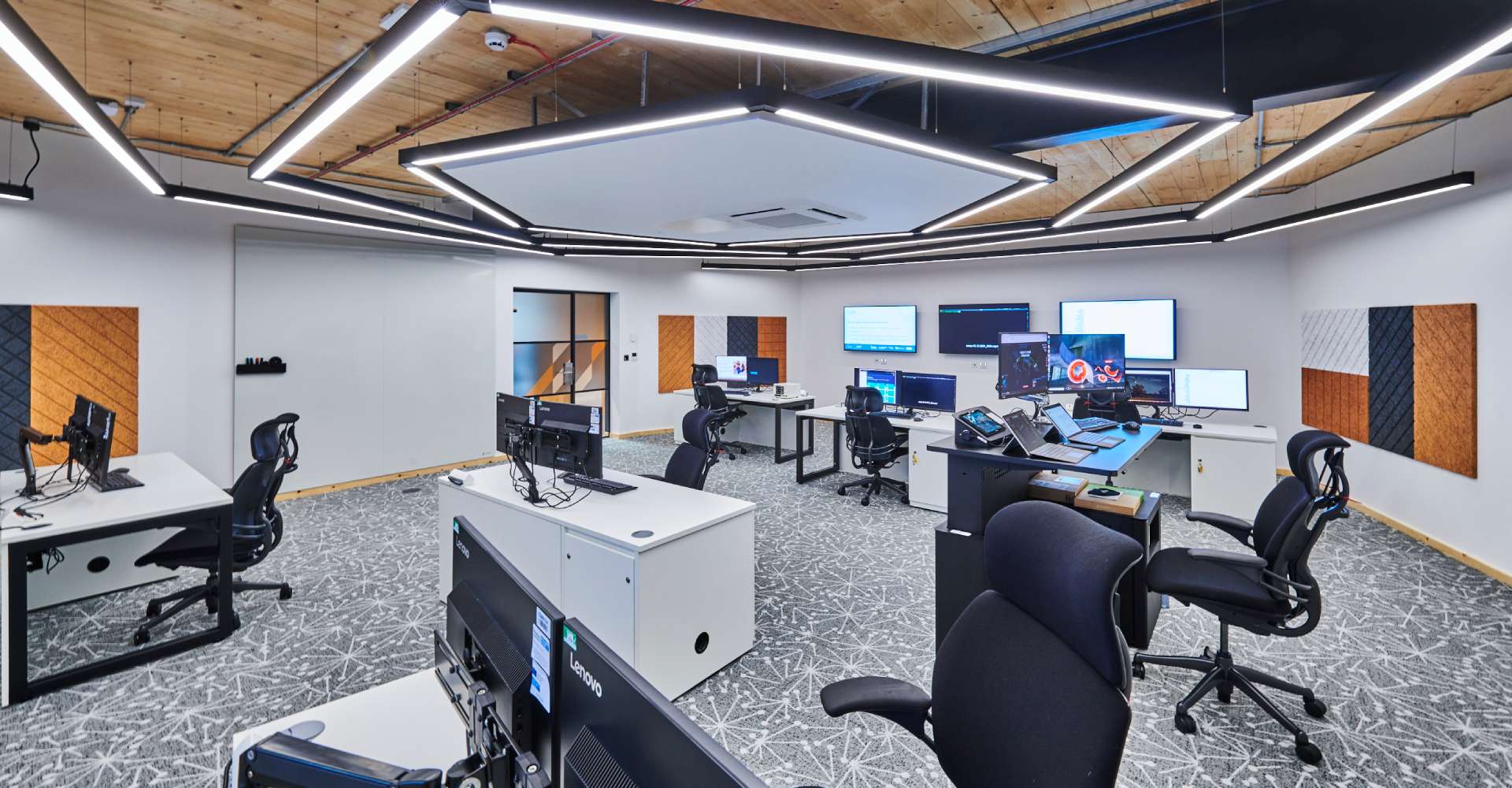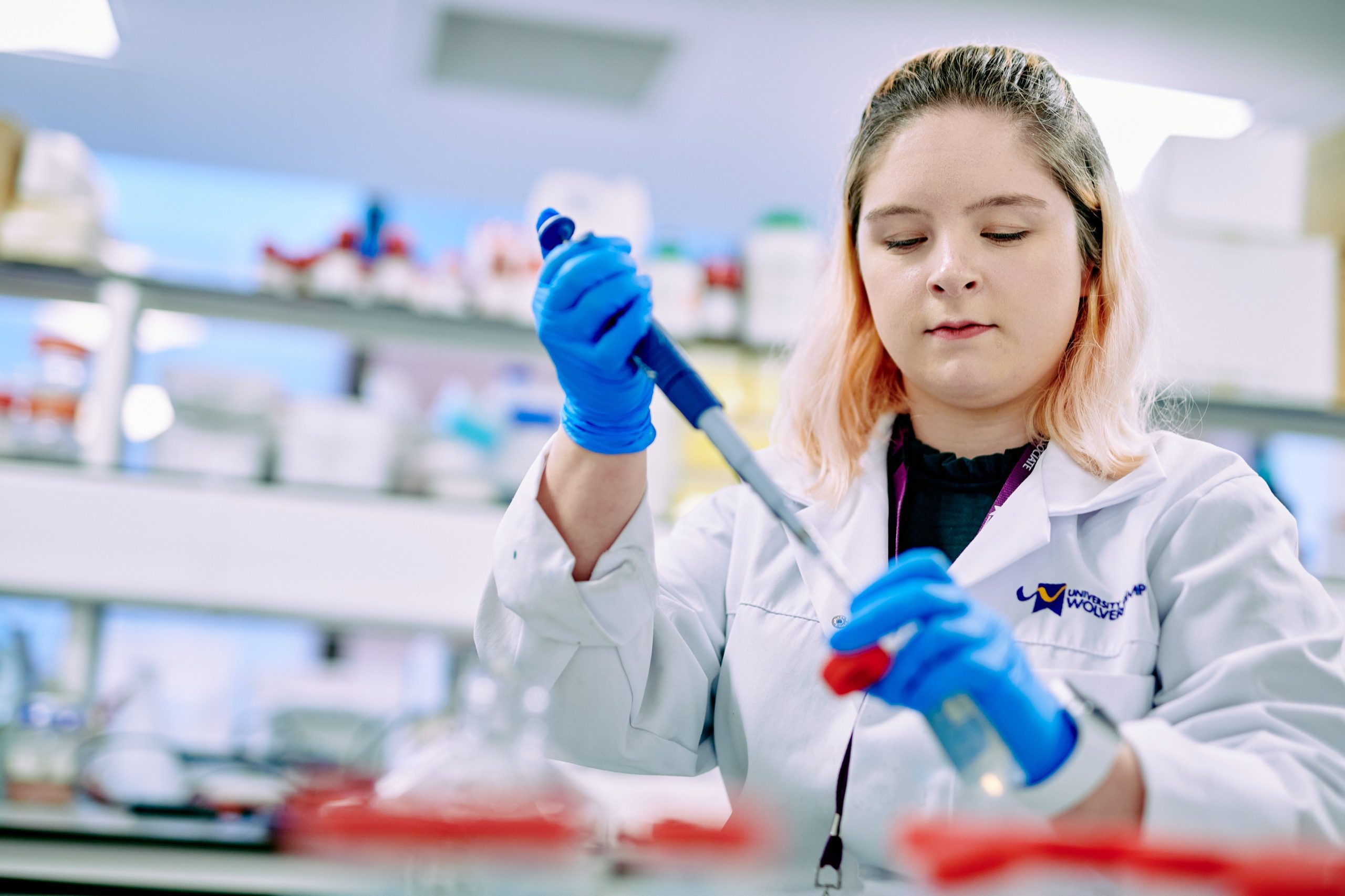No need for needles with Nonacus
Nonacus Case Study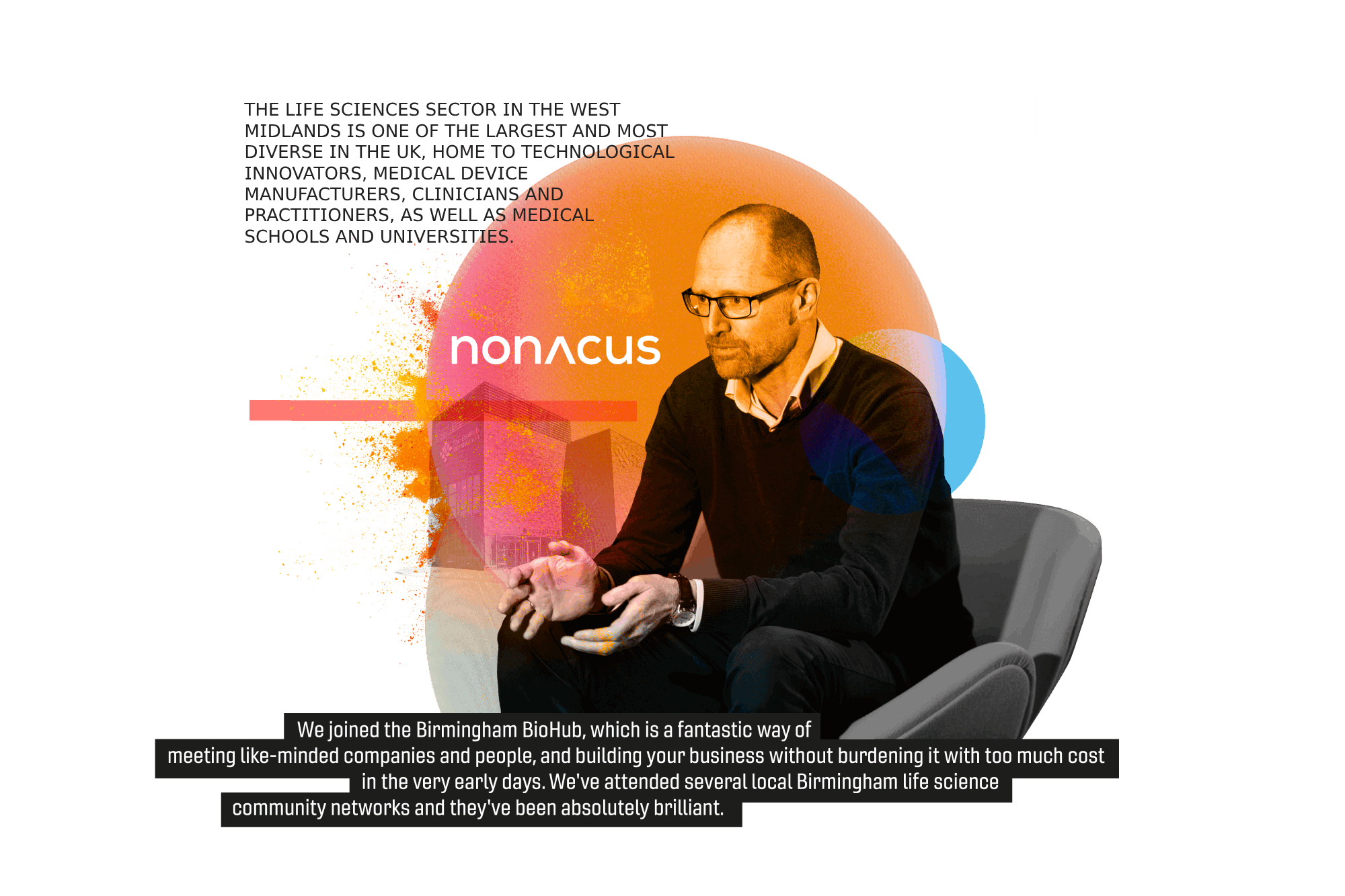
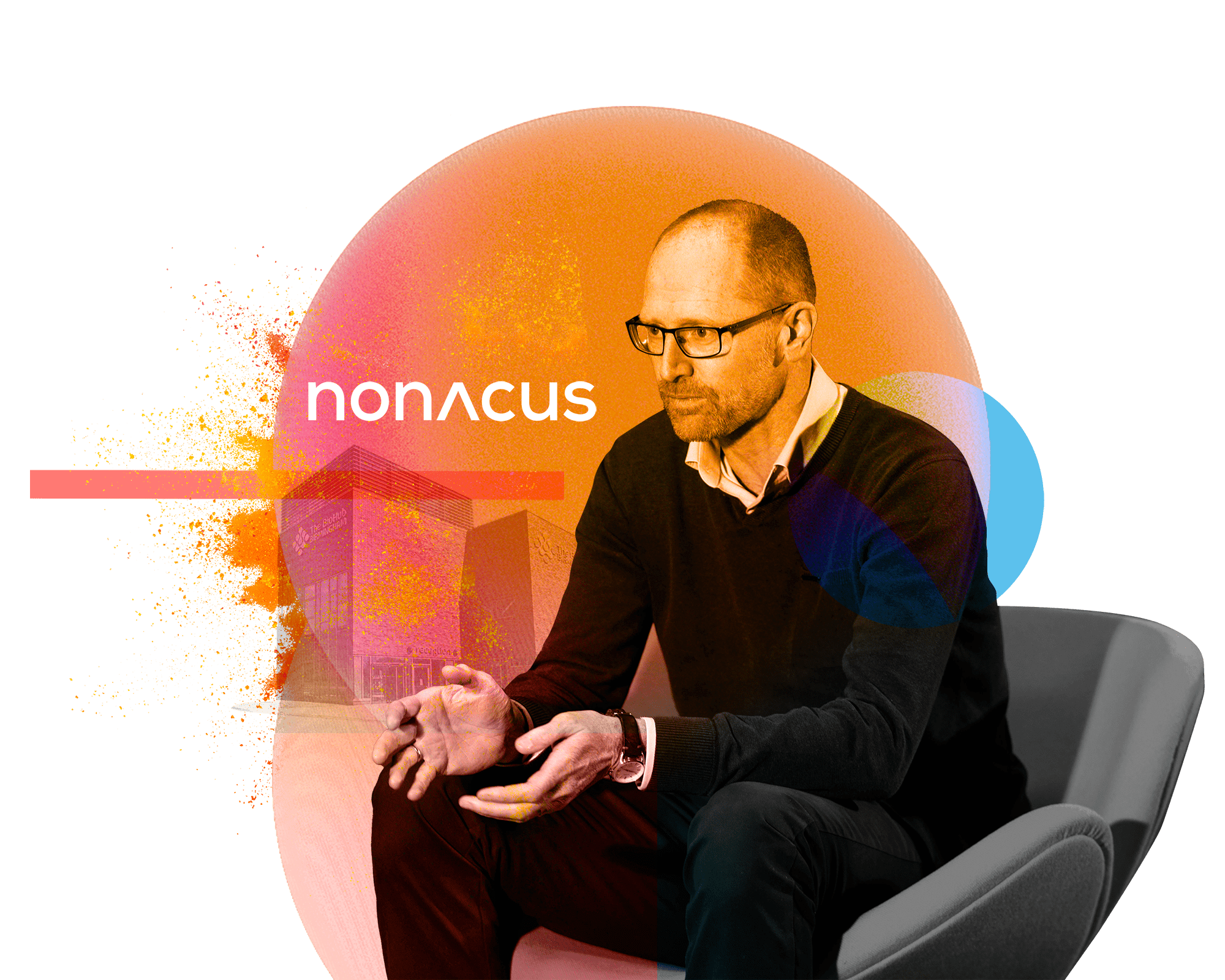
The life sciences sector in the West Midlands is one of the largest and most diverse in the UK, home to technological innovators, medical device manufacturers, clinicians and practitioners, as well as medical schools and universities constantly producing new talent. One business operating in this space is Nonacus, an advanced medical genomics company which has pioneered the groundbreaking GALEAS™ Bladder.
Chris Sale, co-founder and Chief Commercial Officer of Nonacus, explains,
Our mission is about developing non-intrusive, non-painful alternatives to traditional cancer biopsy methods. Our name, ‘Nonacus’, is derived from ‘non acus’ meaning ‘no needle’. Our flagship product GALEAS™ Bladder is a liquid biopsy which can be used to detect bladder cancer without the need for painful or invasive diagnostics.
Nonacus, now ten years old, is based in Quinton on the outskirts of Birmingham, but Sale is not from the region originally. He explains,
When we were in the process of founding the company it was my job to find premises. I spent a lot of time researching, and looked at several options in the areas around Cambridge, Oxford and London, known as the Golden Triangle. The problem we found was that there was so much competition for space, everything was hugely expensive and only available at scale. When I started looking at the West Midlands, I came across the BioHub, an accelerator based at Birmingham Research Park on the University campus. This is a fully-serviced facility. We were able to take one lab bench, one desk, use communal facilities like meeting rooms when we needed to. By taking a space in the BioHub we were able to keep costs down and start at a scale appropriate to an embryonic company. It was a huge help to us in our early days.
Possibly even more important than the low cost was the location. We were in the Research Park, so very close to two large hospitals, the medical school and the cancer sciences at the University of Birmingham. This allowed us to build networks with research colleagues and practitioners, and these relationships really accelerated product development. I feel that Oxford or Cambridge may have been able to provide similar skills, but not in such a concentrated way. Our proximity to key partners was critical to the pace of innovation, and also being able to access such a rich talent pool. There’s a huge depth of talent here in the Midlands. I think there are probably talent pools in other locations in the UK but maybe they’ve already been tapped or they’re at capacity. That’s not the case here.
Nonacus has come a long way in a short time in terms of product development, and Sale says they have no plans to decelerate.
One of the major trends in our industry is around automation of workflows, reducing the time to diagnosis, importantly ensuring that we can deliver improved results versus invasive testing. The ability to provide accurate information rapidly is fundamental. There’s a real pressure in the UK regarding waiting lists within the national health service (NHS) and we want our products to help reduce those waiting times. We really want to help as many people as possible and will continue to develop innovative ways to further automate our GALEAS™ software to help speed up diagnosis, saving time and, ultimately, lives.
For Sale, the patient is the ultimate driver of innovation within the life science space.
I think it’s really a case of thinking about the ultimate need of the patient or end-user of a product, and making sure you can deliver on it in a way that is significantly improved from that person’s point of view. Our GALEAS™ Bladder was borne from thinking about what bladder biopsy patients go through, and how we could make the process easier and less painful, without affecting the accuracy of results. Once you have an idea, it’s important to be in a place where you can connect with other experts – clinicians, academics – and harness their knowledge at all stages of research and development.
Having launched a number of successful products, Nonacus has new challenges to deal with. Sale says,
We’re facing the typical pains experienced by any fast-growing company: trying to scale manufacturing, scale R&D. We’re supplying to over 30 countries which presents logistical issues, particularly following Brexit, and of course we’re navigating some of those internationalisation / commercialisation issues with regards to international jurisdictions.
Although Sale has lots of ideas in the pipeline one piece of advice that he’d give to other burgeoning life science companies is not to become distracted.
Focus. That’s the most important thing if you’re going to see a project through. We work in a fast-moving area in terms of technology where it’s possible to do so much and there’s so much need. There are so many patients, so many cancer types, disease types, which our technology could benefit. It’s very easy to want to do too much, but we need to extend uptake of our existing products before we get started on the next idea.
Taking a life science business from concept to commercialisation is an impressive achievement. When pressed to give advice to fledgling companies in a similar position, Sale recommends they look for incubators and accelerators that will provide low-cost facilities and support while they find their feet.
We went to the Birmingham BioHub, but there are other biohubs and incubators in the region. They’re a fantastic way of meeting like-minded companies and people, and building your business without burdening it with too much cost in the very early days. Also, join up to any networks. We’ve joined several local Birmingham life science community networks and they’ve been absolutely brilliant.
DIVE IN TO ANOTHER STORY:

Medherant Sticks to Success
It Starts Here

Riding the Wave of Disruptive Tech
It Starts Here
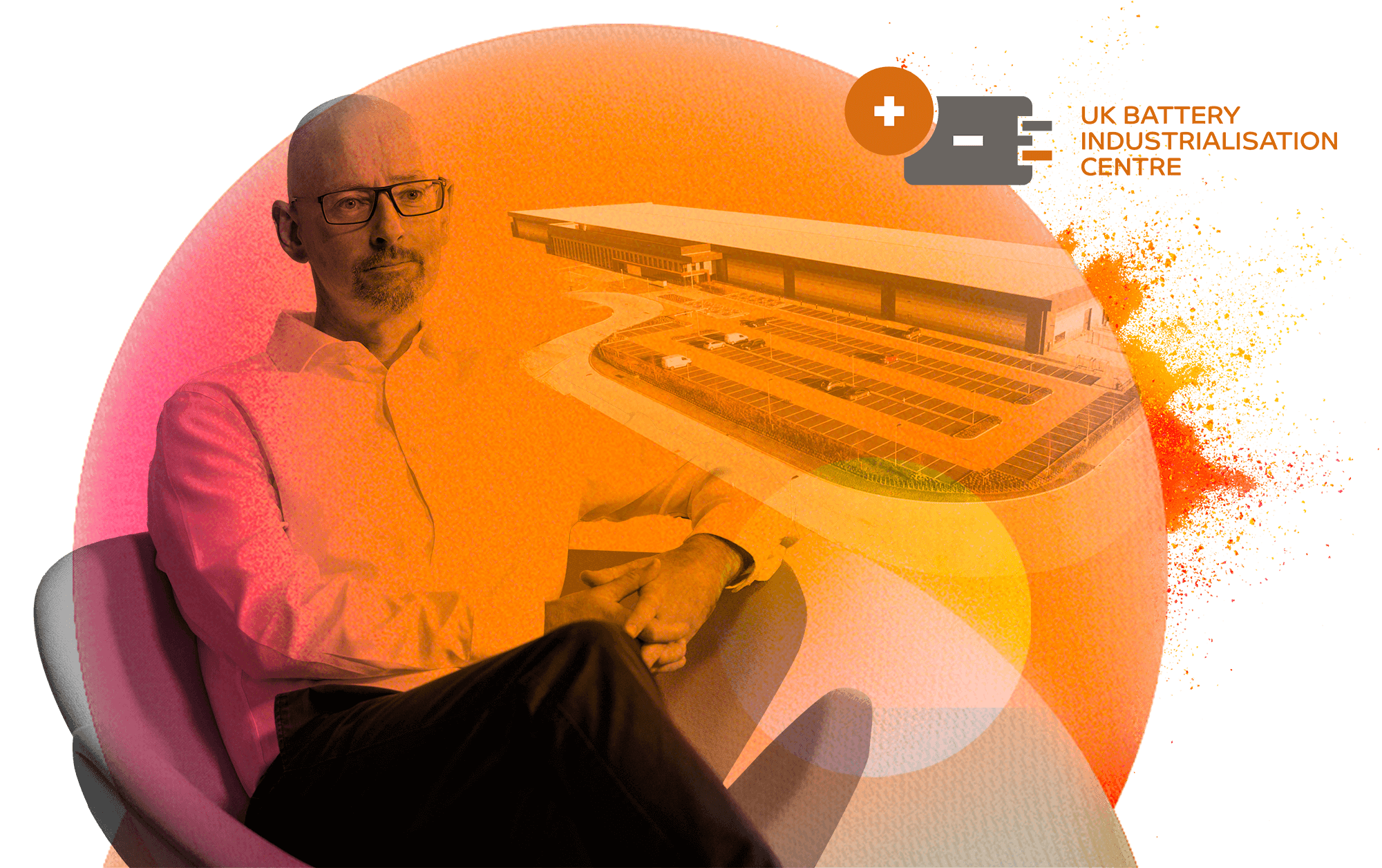
UKBIC Powers Nation Towards Electrification
It Starts Here
